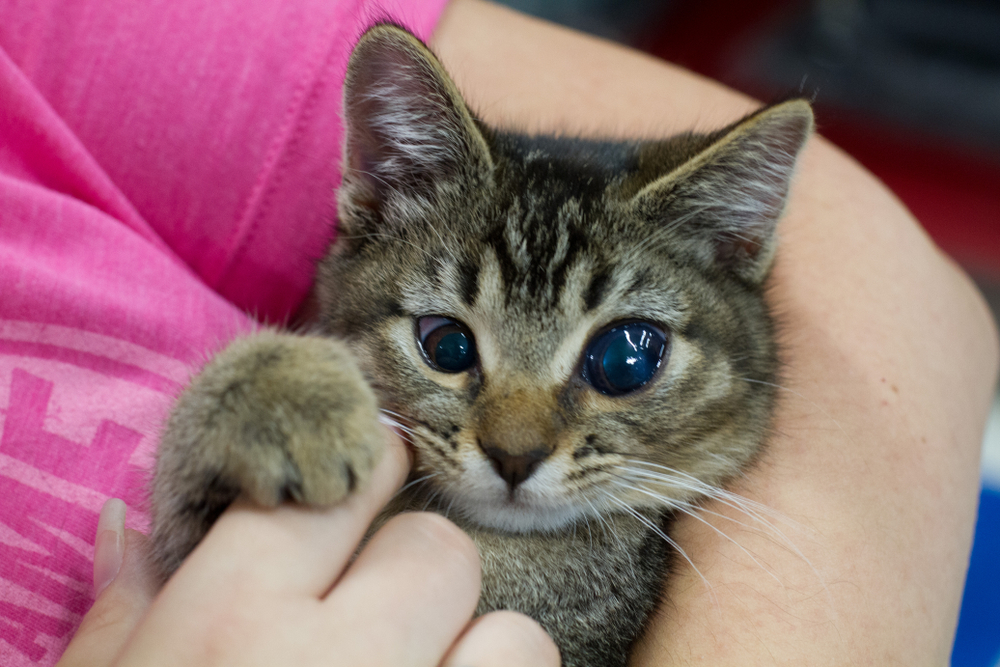When your beloved pet is injured or ill, the slightest cough can seem like a life-threatening emergency. However, not all your pet’s health issues require urgent care, although determining the difference can be tough. As veterinary professionals, we also panic, with all our knowledge going right out the window when our own pets are sick. So, we understand where you’re coming from, and we want to help you determine if your pet is experiencing a true emergency that requires immediate care. Of course, if you’re ever unsure if your pet needs prompt medical attention, contact this south Austin veterinarian for advice. Pet emergencies that require urgent care include the following situations.
#1: Your pet is bleeding
While a minor scrape or wound isn’t a true emergency, a pet who is bleeding from an injury, and the bleeding doesn’t stop after a short period, needs medical attention. Bleeding from the nose or mouth, or blood in the urine or stool, can be a sign of a serious problem that needs treatment right away.
#2: Your pet is having difficulty breathing
Difficulty breathing is always an emergency. If your pet is having problems to the point where they’re panicking, collapsing, or turning blue, rush them to our hospital or the closest emergency hospital. Your pet may be choking, experiencing an allergic reaction, or having a heart-related issue.
#3: Your pet is straining to urinate or defecate
A urinary tract infection, urinary blockage, or constipation can quickly turn into a serious problem. For example, male cats are prone to urinary blockages, which can be fatal if not treated early. Your cat may be entering and exiting the litter box more often than usual, crying in pain, or producing only a few drops of urine, which many pet owners think is because of constipation, when their cat is actually struggling to urinate.
Constipation or diarrhea are other common issues. If your pet has a gastrointestinal blockage—your puppy has eaten a sock, for example—they may be unable to defecate, or they may produce diarrhea. Like a urinary blockage, a gastrointestinal blockage is a life-threatening emergency.
#4: Your pet is limping or in pain
Painful orthopedic conditions can rapidly become worse without prompt care. If your pet is unable to bear weight on a leg, they may have suffered a severe muscle, ligament, or bone injury that needs stabilization to prevent further damage. If your pet is painful along the spine, or unable to jump on furniture, they may have herniated an intervertebral disc, which can rapidly progress to paralysis without proper care. Dachshunds are notorious for back issues, and if you suspect your dachshund has injured their back, you must prevent them from jumping to avoid further spinal cord damage.
#5: Your pet has an eye injury
Although a squinty eye with minor discharge may not seem like an emergency, eyes are extremely sensitive organs that can quickly degenerate if injured. If your pet is displaying any eye issue, seek immediate treatment to prevent further injury.
#6: Your pet is vomiting or has diarrhea
The occasional bout of vomiting or diarrhea is often considered no big deal, especially if your pet successfully begs for table scraps. But, frequent or prolonged vomiting or diarrhea is cause for concern. If your pet cannot hold down water, or they develop chronic vomiting, they need veterinary treatment. And, if your pet continues to have diarrhea, despite withholding food or switching to a bland diet, or if the diarrhea turns bloody, it’s time to head to Oliver Animal Hospital.
#7: Your pet is in a traumatic accident
Pets who have been injured by a car or in a fight can look relatively healthy on the outside, but be suffering from internal or hidden injuries. Blunt force can damage organs, rupture the urinary bladder, or lead to a pneumothorax, which may not be noticeable immediately without diagnostic testing. Dog or cat fights may leave a small tear in the skin, but the puncture may be deep, penetrating muscle, ligaments, tendons, and blood vessels that need surgical repair.
#8: Your pet is exposed to a toxin
Every suspected toxin exposure requires veterinary treatment. You can make your dog throw up your chocolate bar at home, but they may still need intravenous fluids and additional medication to bind the toxin and battle side effects. The sooner your pet receives veterinary care after a suspected toxin exposure, the better their prognosis.
#9: Your pet is having an allergic reaction

Pets can have allergic reactions to many allergens, like people. If your pet is stung by a bee or experiences difficulty breathing after a vaccination, they need immediate treatment to prevent the reaction from worsening.
#10: Your pet is having seizures
Seizures can be a sign of toxin exposure, or they can be idiopathic (i.e., have no known cause). If your pet is having back-to-back or exceptionally long seizures, despite being on anti-convulsant medication, seek fast medical help.
Although Oliver Animal Hospital does not offer emergency services on nights and weekends, this south Austin veterinarian is always here for you and your pet during normal business hours. If your furry pal experiences a potentially life-threatening situation and requires urgent care, contact our team for immediate help. We can also guide you toward the nearest emergency veterinary hospital to ensure your pet receives prompt treatment.







Leave A Comment